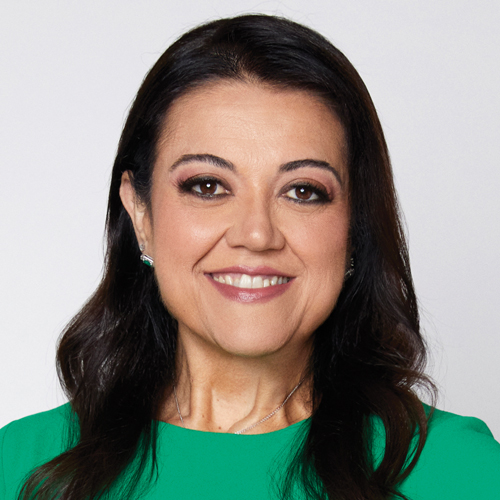
Smester has been a driving force within NBCUniversal Telemundo Enterprises, shaping the network’s programming and content development. Thanks to her leadership, Telemundo has seen incredible success, including the 72nd Miss Universe pageant, which pulled in 113 million viewers, and the hit reality show “La Casa de los Famosos.” She’s also made waves internationally, leading Telemundo’s biggest-ever casting call, which attracted over 30,000 applicants across the U.S., Mexico and Colombia. As a mentor, Smester continues to inspire the next generation of media professionals, especially young women.
What’s your boldest prediction about your industry in the next 10 years? One prediction for the TV and content production industry is the rise of AI-generated content that challenges human creativity. Another prediction will be the emergence of decentralized content platforms that empower independent creators.
Has the internet created more inclusion or exclusion? The internet has significantly increased inclusion in the TV and content production and creation industry by offering platforms for diverse voices and independent creators to showcase their work. Despite some complexities, it has largely fostered greater representation and access, enabling a wider range of stories to reach audiences.
Advice I would give a recent graduate:
- Network Actively: Build relationships in your industry through networking events, social media, and informational interviews.
- Stay Adaptable: Change is the only constant in this industry. Be open to various roles and experiences; flexibility can lead to unexpected opportunities.
- Keep Learning: Invest in continuous education and skill development to stay relevant in a rapidly changing job market.
- Build a Personal Brand: Cultivate an online presence that showcases your skills, projects, and interests.
- Be Persistent: Rejection is part of the journey; stay resilient and keep pursuing your goals.
Will AI help or hurt diversity and inclusion? AI has the potential to both help and hurt diversity and inclusion in the TV and content production industry.
Help:
- Identifying Bias: AI can analyze content for bias and suggest more inclusive narratives.
- Broadening Access: It can enable diverse creators to produce and distribute content more easily, lowering barriers to entry.
Hurt:
- Homogenization of Content: AI might prioritize popular trends over unique stories, leading to a lack of diversity in narratives.
Ultimately, the impact of AI will depend on how it is implemented and the intentions behind its use. We shouldn’t fear technology; instead, we need to understand its potential and how to leverage it. Content remains king, and now we have a wider, global audience, providing us with a greater reach for our production